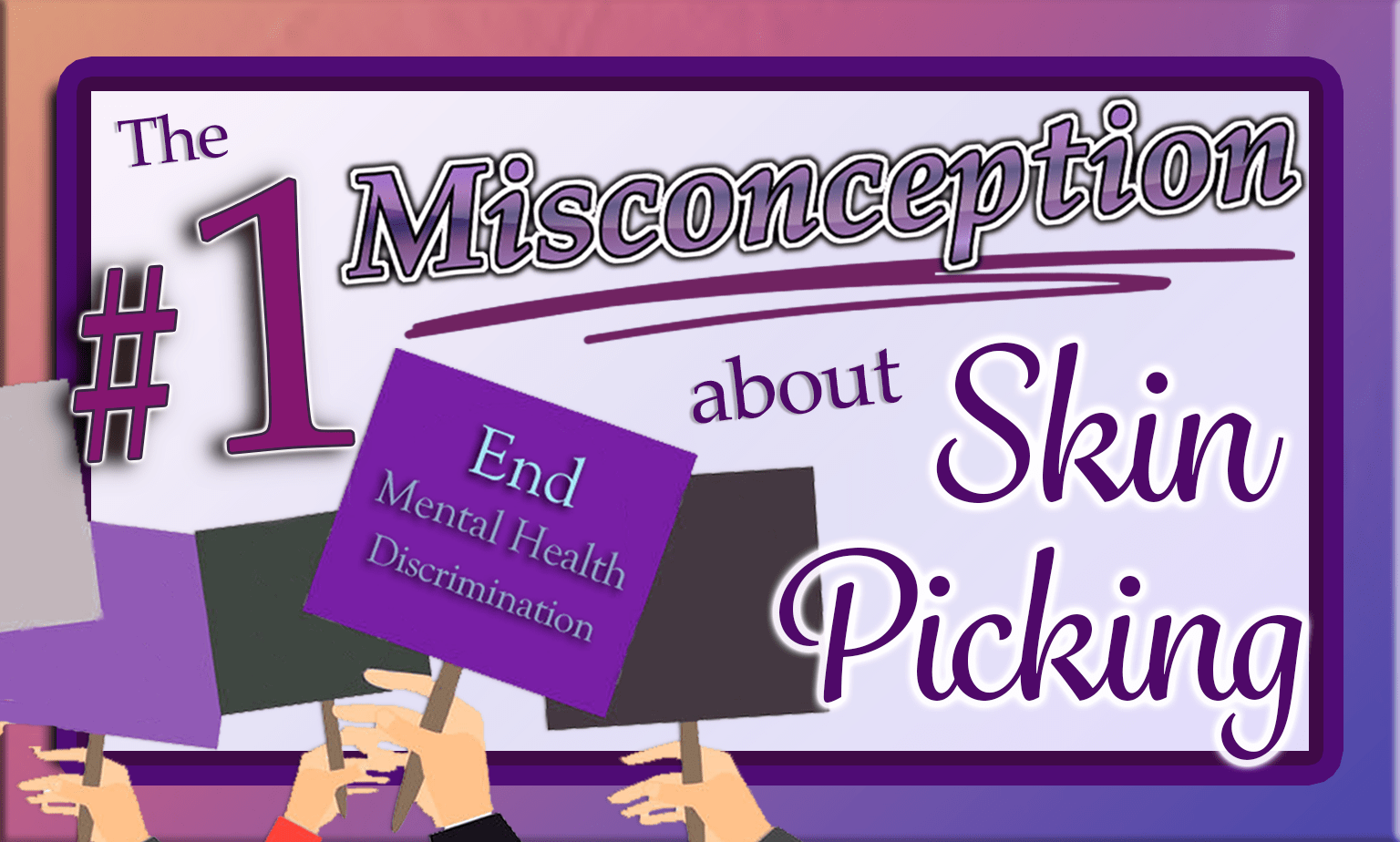Awareness for dermatillomania and other Body-Focused Repetitive Behaviors (BFRBs) has magnified over the last decade. In 2013, the DSM-5 recognized compulsive skin picking as excoriation disorder, categorizing it under a new Obsessive-Compulsive and Related Disorders section in the mental health diagnostic manual.
While efforts have come a long way to inform the population about the existence of BFRBs, people with visible marks can be mistaken for having a skin disorder, or a stigmatizing condition such as AIDS. People with dermatillomania can also be stereotyped as unhygenic based on tropes that people with acne don’t take care of their hygiene. These immediate judgments can have devastating emotional consequences for someone sensitive to the appearance of their skin, increasing their anxiety (among other mental health issues) and causing them to isolate from public view.
The most common suggestion people who compulsively skin pick get is that they are on illegal drugs. One symptom of heroin or opioid use can be getting itchy skin, which manifests by the person picking at their skin to relieve the physical sensation. In methamphetamine users, the stimulant can also cause delusional parasitosis which makes them to believe they are infested with living organisms (such as bugs or parasites). While excoriation disorder is a different condition altogether, there is more public awareness about the effects of narcotics than there is for BFRBs.
Social stigma for dermatillomania is high, especially when someone can’t grasp how a person cannot stop a repetitive behavior that causes damage to the skin. The stigma for drug users is much more enforced in society because of discriminatory beliefs. From thinking they’re weak, criminals, poor, unclean, or diseased, among many other unfair assessments, these labels can be placed onto people with dermatillomania because of what open marks on the skin currently represents to the average person.
These judgments can determine whether a doctor will pay attention to your concerns in an ER or believe you’re “drug seeking”. People with skin lesions are also susceptible to being stereotyped by law enforcement, becoming targets instead of seen as credible- especially in already marginalized groups who already experience disproportionate amounts of discrimination.
Whether or not a person’s picking is the result of drugs, mental health, or both, we should all agree that it is unfair to judge a person based on their skin. Those with addictions are not any less worthy of compassion, empathy, or help for their behavior than we are. The struggle may differ from ours, but we relate in our experiences of rejection and the judgment that comes with not having socially acceptable coping mechanisms.
